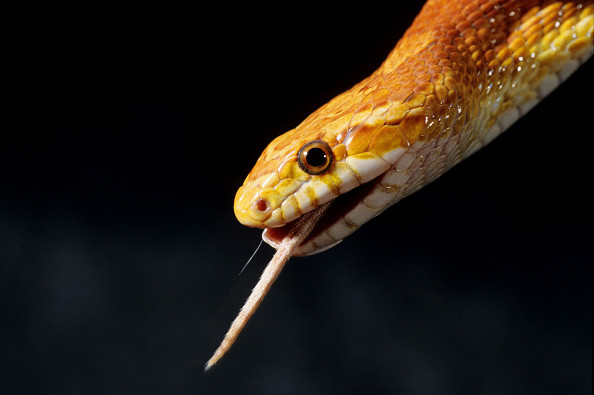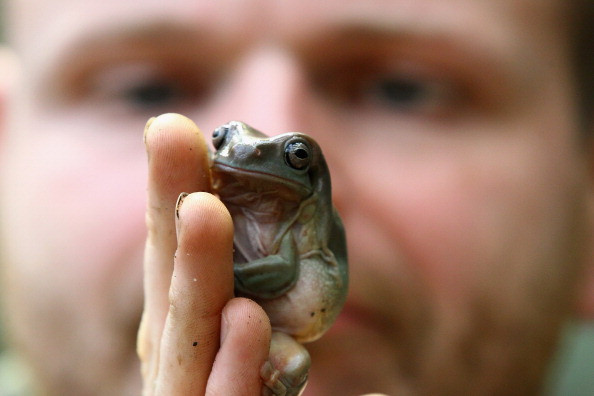How can the welfare of millions of exotic pets in UK homes be improved?
Monkeys, reptiles and other exotic animals are kept in the UK, with specific care needs.

Forget about cosying up to a dog or a cat ... Some of the most popular pets in the UK now include geckos, snakes or marmosets. Their exact population figures are unknown, but veterinarian associations and animal welfare charities believe that the number of 'exotic' animals being kept in UK homes is on the rise.
Last May, a Freedom of information Act filed by the Press Association revealed that one hundred councils had issued licences for people to keep dangerous wild animals such as lemurs, cobras or alligators at home .
However, no licence or official document is required to acquire or breed many other types of exotic pets – from royal pythons to tarantulas and scorpions – so the exact number of non-traditional pets kept in the country remains uncertain.
Other estimates are based on live food and dry good sales in 2014, and indicate the number of reptiles may have reached between 5 and 8 million, very similar to the UK dog population.
While cases of exotic pets being mistreated are frequently publicised, it is worth mentioning that traditional pets also frequently suffer from neglect. Research conducted by UK veterinary charity PDSA in 2015 demonstrated that 2.7 million dogs lack the opportunity to exercise in accordance with their welfare needs – and that a quarter of a million were not taken out for walks at all.

The difference with exotic animals is that they require specialist care and often, more advanced knowledge on the part of owners. "The main thing about keeping any exotic animal is research. It's guaranteed to be like nothing you've ever looked after before and there can be huge or subtle differences between any species", Steven Crockford, the proud owner of many reptiles, including corn snakes, royal pythons, geckos, tortoises, frogs, and various species of tarantula and scorpions, told IBTimes UK.
"The biggest difficulty I'd say for anybody getting started with keeping an exotic animal is finding the right information. We live in a golden age for access to information online, however it's difficult to know if the information you're reading is correct or out-dated, there are also many different ways of keeping the same animal and not everybody will agree on them all",
Animal welfare groups and vets across the UK say steps need to be taken to make sure owners have done their research and have sufficient knowledge to take care of their pets – this being true for exotic species but also more traditional pets. They want new measures to be taken in order to enforce the Animal Welfare Act.
What is the Animal Welfare Act?
The Animal Welfare Act came into force in 2007 with the aim of better protecting animal welfare by introducing a legal 'duty of care' for owners. It lists five welfare needs that owners must meet for their pets, traditional and exotic alike. They include access to a suitable diet, living environment, and healthcare as well as the freedom to behave normally as a species and to have appropriate companionship. If they do not meet these needs, owners can be prosecuted.
"For reptiles this can mean a particular focus on making sure the animal has access to a carefully controlled living environment, including proper lighting and humidity. For some animals, such as primates, their needs cannot be met as pets, which is why the British Veterinary Association (BVA) is campaigning for a ban on the keeping of primates as pets" BVA president Sean Wensley told IBTimes UK.
This means that anyone who thinks about acquiring a pet should do research before they take it on. "People should look at their own lifestyle and circumstances and find out what type of animal they could meet the five welfare needs for. Otherwise that animal may suffer and the owner could end up being in trouble with the law" Wensley added.
The problem is the Act may be poorly enforced for animals that are kept permanently in the home and not visible to others. The most important step to improving the lives of all pets, and overcoming the often-seen problems caused by impulse buying, is to make sure prospective owners pause and find out more before taking a pet on.
Specific needs of exotic pets
Some exotic pets, like reptiles, are considered the perfect fit for our modern, busy, urban lifestyles, but this does not mean mistakes cannot be made when it comes to taking care of them.
"Research shouldn't just be a one-time thing before you buy the animal, practices are constantly changing. One of the mistakes that always get to me is people anthropomorphising their pets – when we start to think of these animals as having human qualities", Crockford explains. "While you might like to take your snake out every day to watch TV with you, is it really best for his health when he'd much rather be hiding under a rock?"
Specialist vets can provide advice, but often struggle to reach owners who are most at risk of providing inappropriate care. "The exotic animals I see are usually well kept, but it is possible that my perspective is skewed because owners that bring their pet to the vet are the ones that actually want to care well for them", Marie Kubiak an exotic animal vet, told IBTimes UK.
Regulation and education
To respond to these challenges, the House of Commons' Environment, Food and Rural Affairs Sub-Committee has been holding a series of short inquiries on animal welfare over the course of this Parliament, and Animal Establishment licensing consultation also ran until March 2016. This has been the ideal occasion for vet associations and charities to come up with constructive and collective proposals to regulate the trade of exotics and make sure their specific needs are met.

The first idea they have highlighted is that all sellers should hold appropriate licences. Creating specialist pet shops with the right to sell the more challenging exotic species would be a crucial measure, so that only those that have the necessary knowledge can work with these animals.
Measures to improve traceability of these pets would also constitute a step forward. Any breeder could be made to register online prior to selling, allowing regulators to track back to the original point of sale if a problem subsequently arose.
But it is the education of all parties involved in the welfare of animals - owners, vendors and vets - that is really crucial. "We believe retailers should be able to demonstrate they are able to meet their animals' welfare needs as part of pet shop licensing process, and there should be a legal requirement to deliver written information to owners regarding the species' five welfare needs. In turn owners should be required to demonstrate some evidence that they understand and are able to meet welfare needs prior to purchase", Michael Stanford, from the British Zoo Vet Society Council, explained.
Stop pleading ignorance
To achieve this, a centralised website with verified, accurate information regarding the care of different species could serve as a useful tool. Its centrepiece would be an online interactive test about the welfare knowledge of all pets, which prospective owners would have to pass before they are allowed to purchase the animal.
"This system could be incentivised by the trade as a shopping list could be generated of the items an owner requires and we believe if stakeholders commit to cooperating to create this education system it can be self-sustaining at a realistic price", Stanford points out.
Such proposals are likely to lead to a better enforcement of the Welfare Act, because it means that owners who are prosecuted for mistreating their pet would not be able to plead ignorance.

Other similar measures are being studied, but their aim is always the same: regulating the trade and boosting the welfare of animals without resorting to an outright ban on ownership. It is unlikely that a ban would be effective to protect animals. Specific bans, like the Dangerous Dogs Act for example, have not had any significant impact on the number of dog attacks or breed ownership.
"It would be difficult to implement such a ban without criminalising a large proportion of the population as so many people now own reptiles or other exotic pets. As long as these animals' welfare needs can be met there appears to be no justification for a ban and it would risk driving the trade underground which would be expected to be negative for animal welfare. What we need to focus on now is constructive measures to improve the way exotic pets are cared for," concludes Stanford.
© Copyright IBTimes 2025. All rights reserved.






















